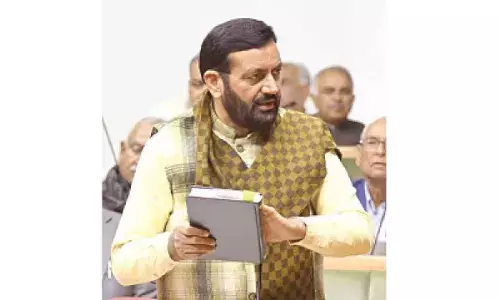Why Milei wants to pull out of Mercosur

Move is similar to the UK exit from European Union
Milei, who was elected as Argentina’s new president on November 19, has promised to withdraw from the South American “common market”, Mercosur.
This decision could have significant economic and social repercussions for Argentina, potentially similar to when the UK pulled out of the EU. Mercosur has some similarities to the EU. For instance, nationals of nine South American countries (Argentina, Bolivia, Brazil, Chile, Colombia, Ecuador, Peru, Paraguay and Uruguay) enjoy the right to enter, reside and work in all of the above countries.
Those rights are enshrined in the Mercosur Residence Agreements, which were adopted in 2002 and came into force in 2009. Between 2009 and 2021, over 3.6 million South Americans obtained residence permits allowing them to live in other countries through the Mercosur agreements, according to the International Organization for Migration.
Argentina played a crucial role in the adoption of these agreements. They resulted from an Argentinian proposal to establish a permanent mechanism for citizens of Mercosur countries to gain access to legal residence in other nations. For the past 20 years, Argentina has also played a leading role in regional migration policy.
Its 2004 migration law, which has been praised by the UN as a model, has had significant influence on migration law in other countries in the region. Mercosur was established in 1991. Every country in the region is either a full or an associate member state. It seeks to deepen economic and trade integration among its members, to grow cooperation on social policies and serve as a common platform for global geopolitics to create a common approach to some international issues, such as migration and trade. Mercosur and the EU have also been negotiating a trade agreement for years, but it is not yet clear if it will be ratified.
Why pull out?
Against this backdrop, it is worth considering the motivations for Milei’s proposal to leave Mercosur, its possible repercussions and the procedure that would need to be followed. Milei, a self-proclaimed anarcho-capitalist libertarian, who advocates for minimal state intervention and the adoption of the US dollar as Argentina’s currency, has proposed Argentina leave international and intergovernmental organisations. These include the Brics (Brazil, Russia, India, China, and South Africa) community, which it was invited to join by 2024, and the Union of South American Nations (Unasur), which it rejoined in 2023. According to Milei, neither the state, nor supranational and regional organisations, should interfere with free trade. For this reason, Milei described Mercosur as a hindrance.
Argentina would face three significant challenges, if it were to leave. First, Mercosur has provided stability in the region and a platform for Argentina to voice its ideas, interests and demands internationally. Leaving the organisation would, therefore, weaken Argentina’s ability to address shared regional and global challenges, isolating the country from the rest of the region and the world.
Second, this could affect the functioning of the residence agreements mentioned earlier, making it harder for Argentinians to work in other South American countries and vice versa. It is worth noting that around 80% of migrants to Argentina originate from other parts of South America. In addition to that, more than 300,000 Argentinians live in other South American countries and their rights could be affected by such a decision.
Third, this would also have a cost for the Argentine economy. Mercosur accounts for almost 25% of all Argentine exports and intra-regional trade has been growing in the last years. Finally, Article 21 of Mercosur’s 1991 founding treaty requires any state wanting to leave the agreement to formally communicate it to the other member states 60 days before leaving. As well as this, Argentina’s constitution requires an absolute majority vote in both the Congress and Senate to make such a move.
It is worth mentioning that the president-elect’s party and allies do not even hold a simple majority, in either of the chambers, the deputies and Senate. However, the president does have, on many issues, the legal power to bypass Congress by issuing executive decrees.
In the days after the election, Milei and his newly appointed ministers softened some of the more radical proposals in their agenda. For instance, the minister of foreign affairs designate Diana Mondino recently declared that Argentina “will not obstruct the Mercosur-EU Agreement” and will maintain good relations with Brazil, Argentina’s main trade partner and the most significant economy in South America. But Mondino has confirmed that Argentina will not join Brics.
This suggests that Milei may have to tone down his more radical ideas in line with political and legal realities. Clearly they were intended to attract an electorate that is deeply unhappy with the previous government’s economic mismanagement and the current economic crisis.
The rest of South America will be closely monitoring the political developments of a country that still leads regional agendas on current issues of global relevance, such as climate change and migration, to see which way it will turn. (Acosta is Director of the Global Chair Nebrija-Santander on Migration and Human Rights, at Nebrija University in Madrid, Spain; Brumat is Senior Research Fellow at Eurac Research, Associate Research Fellow, Institute for Comparative Regional Integration Studies (UNU-CRIS), United Nations University)









